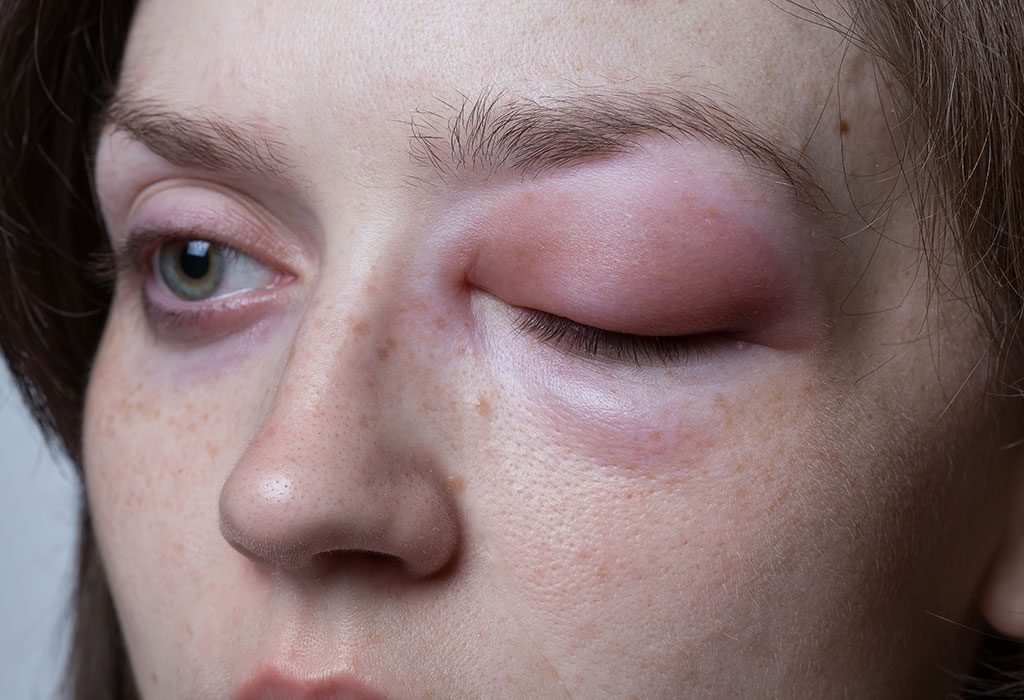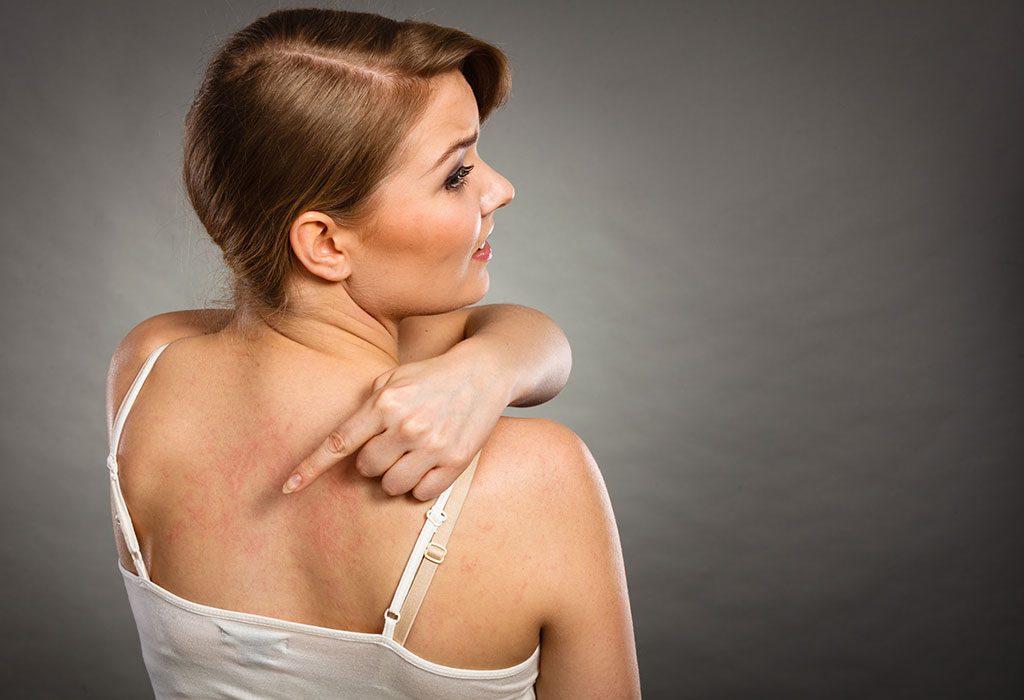In this Article
You may undergo several physical changes during pregnancy. These changes may sometimes include skin changes too, and hives or urticaria may be one of them. If you are concerned about hives during pregnancy and want to know its causes, symptoms, treatment and more, then you should read the following article.
What are Pregnancy Hives?
Hives are very common in pregnancy and may occur at any stage of pregnancy. Even if you have never had this skin condition in your life, you may have it in your pregnancy, just like pregnancy acne. These pale red, raised bumps of the skin may be one of the side-effects of pregnancy and nothing but pregnancy hormones or chemical changes happening inside your body are to be blamed for the same.
Are Hives Dangerous In Pregnancy?
Luckily, not all cases of hives cause a serious threat to the would-be-mother or her unborn baby, though hives is generally a very uncomfortable state for the mother. As soon as you notice any symptoms related to hives, you should get yourself checked by your doctor to rule out any complications that it may cause. However, if you develop a rash around your genitals, then you should seek immediate medical help. In some cases, hives can lead to serious complications, when it is not a pregnancy-related side-effect but an allergic reaction. You may go into anaphylactic shock. Other symptoms may include:
- Throat tightness and difficulty in swallowing.
- Wheezing and extreme shortness of breath.
- Feeling of fainting.
- Swollen tongue or face.

Causes of Hives During Pregnancy
Some of the reasons of hives are difficult to establish, whereas the other common reasons that may cause hives during pregnancy are as follows:
- Insect bites may cause hives.
- Consumption of certain food items may lead to hives.
- Insect and animal dander can be the cause of hives during pregnancy.
- Pollens are exposure to certain chemical may cause hives.
- Taking some medication in pregnancy may cause hives too.
- Pregnancy leads to weight gain, and when you gain weight, your skin stretches and loses its moisture. The lost moisture from the skin causes severe dryness that may cause itching and in some cases hives also.
- The changing pregnancy hormones can be the culprit for hives. Your body releases various hormones during pregnancy, and sometimes your body reacts vigorously to the changing hormones and releases antibodies to fight them. When your body releases antibodies, it may cause hives.
- In some cases, anxiety and stress may also cause hives in pregnancy.
- The lower immunity during pregnancy makes you more prone to allergies and infections.
Symptoms of pregnancy hives
How will you establish that you have hives during pregnancy? Here, we have some common signs and symptoms of hives that will help you know about your condition:
- You will notice raised welts on different parts of your body. These welts can be extremely uncomfortable and painful.
- You may experience itching on the breasts, thighs, buttocks and tummy. These are the areas where pregnancy weight accumulates, thus stretching the skin and causing hives.
- You may experience extreme skin dryness around your tummy, buttocks and thighs.
- You can notice welts in small groups or all around your body. These welts may keep changing places too. However, in most cases, these welts are observed around your legs, arms and back.

Treatment for Urticaria During Pregnancy
There are many over-the-counter medications available for the treatment of hives. However, it is recommended to abstain from self-medication during pregnancy. You may use various home remedial measures to cure hives too. Whatever the case may be, you should seek your doctor’s consent for the same. Here are some treatment options for urticaria or hives during pregnancy:
- The sure-shot remedy to treat hives is to moisturize your skin. You can use good moisturising lotion to provide nourishment to the dry and itchy skin.
- Any drying agent, such as harsh soaps may aggravate the symptoms of hives; therefore refrain from using any harsh chemical based soap. You may use mild moisturizing bars that will help to keep your skin soft and moist.
- You can use oatmeal and baking soda to provide relief against itching and dryness.
- Your doctor may prescribe ointments and oral medicines to help relieve the symptoms of hives.
If you are wondering how you can get rid of your pregnancy hives, you can effectively follow any of the above-mentioned treatment options for the treatment of pregnancy hives.
How to Prevent Hives?
There is no need to be scared of this skin condition as proper care, and preventive methods may help you keep hives at bay.
- Refrain from wearing tight fitted clothes during pregnancy. Tight-fitted clothes may cause skin irritation. You should wear loose cotton clothes that feel soft against your skin and prevent hives in early pregnancy
- Refrain from using harsh chemical-based products that may cause harm to your skin and may cause hives.
- Do not take hot baths or showers during pregnancy. These can not only deprive your skin of its moisture, but it is also not safe for your baby. Take warm water baths and moisturise your skin well after the bath.

- In case you feel the urge to itch, refrain from doing so because scratching may further aggravate the itching.
- Adopt various relaxation techniques to soothe your mind and heart because hives are sometimes caused due to anxiety and stress. Find out ways to relax. Prenatal meditation and yoga is a good option to help relax.
These are some of the preventive techniques that you may effectively adopt to reduce the symptoms of hives. Although you cannot eliminate all your chances of getting hives during pregnancy, but proper care and precaution may surely help you deal with it.









